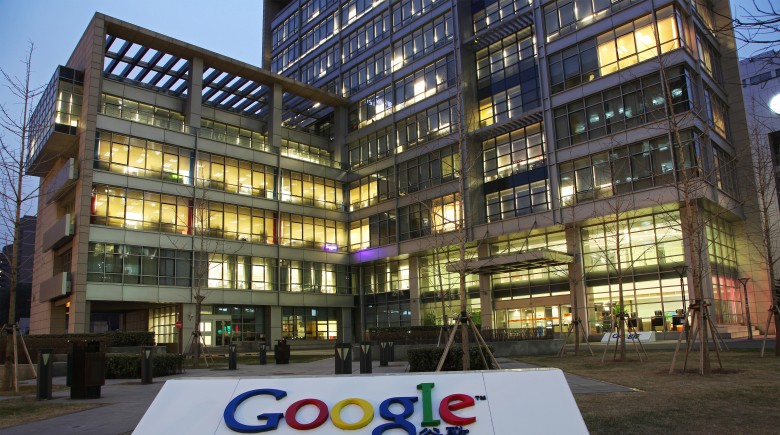Ok, I guess near internet monopolies is more accurate. This wasn’t how it was supposed to be though. At the beginning of the mainstream surge in internet use, I think it is fair to say that nobody envisioned this particular outcome. Sure, the decline, if not demise of books and retailers, brokerage firms and more was predicted and to one degree or another has come (somewhat) true. But I don’t ever recall the futurists warn that the major players in the internet world would be world dominating goliaths with no serious competition. And it is puzzling.
But it is hard to ignore what has happened. Facebook is the social media site, Twitter is the short-form news/gossip/venting site, Craigslist is the local classified site, Ebay is the auction site, Amazon is the retailer, Google is the search site and YouTube is the video site. None of these companies have anything resembling real competition and it is difficult to see that they ever will. Now Twitter, just to use an example, may be replaced by something slightly different, but that’s the thing–it would be replaced. It seems, as Facebook finally won out over Myspace, that there is only room for one player in each category. And it seems odd. Yes, there is indeed competition in the sense that a Tumblr, and other companies are always giving it a go and are fiercely vying for eyeballs/customers. But things seemed to have settled out into monopoly mode and it is hard to see a way out.
Now, there is an argument that can be made that the internet is still relatively young and many a successful company, i.e. Napster and the aforementioned Myspace has been a casualty of intense competition, and therefore many more will follow. In addition, this theory goes, all of those big names will, sooner or later get competition and have to fight for their customers. But is that really true? Railroads fought like dogs as did car companies and telephones, radios and televisions. And with the possible exception of AT&T (with a little help from the government) there seemed to be more than one player standing at the end. And it is not insignificant. It would have cost enormous amounts of money to compete in those industries once they became established. And isn’t the same true of the internet? What would it cost to compete with Amazon, for example? I’m not saying a Walmart or some other company can’t eventually do it, but I am old enough to remember when Amazon was the “little guy”. The prognosticators at the time were worried that Walmart could–any time now– come in and big foot Amazon into dust. It didn’t happen and now everyone is wondering (and doubting) if it can.
Internet monopolies are tricky things. How would one start up a truly competitive site to Ebay? Some are doing it now by mostly catering to specific interests, like rare comic books for example. And who knows, someday one of these upstarts may catch on more broadly and really give Ebay a run for their money. But it won’t be easy. As in any monopoly Ebay’s biggest vulnerability is that it arguably overcharges its users for the services offered. But any competitor coming at it from that angle better have deep (really, really deep) pockets because Ebay can just cut its prices to near nothing (and maybe even below that) until the upstart is crushed. Amazon is in a similar situation.
Companies like Facebook and Youtube are free of course and are reliant on the fact that they have hit such a critical mass of users as to be nearly impossible to supplant. Recent rumblings from fed up (or at least tired of it) Facebook users leaving the site, highlights the fact that there is some form of a coolness factor involved as well. If enough people perceive of a company collectively falling out of favor (see Myspace) then danger most definitely lurks there. But, still and all it is hard to conceive of 5 different Facebook-like companies all with roughly the same market share. Even two, as in Coke and Pepsi, seems to be a distant prospect.
Now, don’t misunderstand, I realize that a site that is free to the user isn’t really a monopoly in the classic, non-digital-world sense. But there are comparisons. The television networks had the “free” airwaves to themselves for decades (again with some government help) and while not a monopoly, they might as well have been. There was hardly an issue that they disagreed on and while they all wanted to be number one with viewers, it was far more important that they were the only ones with access to those airwaves. With that access, the money flow was always measured by the truckloads. If one year a network happened to only get 9 truckloads instead of 10, well, no one was crying any rivers.
Of course, the government is not preventing competition as they arguably were for the networks, but once established, companies like Ebay are tough to tackle. Hey, the big three original networks are still huge even today, some 30 plus years after cable television. These internet monopolies seem to be in good position to be big players for many, many years to come as well, no matter the coming landscape. It’s just very strange that it has come to this. I don’t know of anyone who predicted the current outcome (although I could certainly have missed someone or another). What do you think? Is it a big deal or just something minor and temporary? What will happen next to these companies? I will be sure to be back to this topic soon, but for now I really just wanted to point out the phenomenon and see what you guys think.
Ok, I guess near internet monopolies is more accurate. This wasn’t how it was supposed to be though. At the beginning of the mainstream surge in internet use, I think it is fair to say that nobody envisioned this particular outcome. Sure, the decline, if not demise of books and retailers, brokerage firms and more was predicted and to one degree or another has come (somewhat) true. But I don’t ever recall the futurists warn that the major players in the internet world would be world dominating goliaths with no serious competition. And it is puzzling.
But it is hard to ignore what has happened. Facebook is the social media site, Twitter is the short-form news/gossip/venting site, Craigslist is the local classified site, Ebay is the auction site, Amazon is the retailer, Google is the search site and YouTube is the video site. None of these companies have anything resembling real competition and it is difficult to see that they ever will. Now Twitter, just to use an example, may be replaced by something slightly different, but that’s the thing–it would be replaced. It seems, as Facebook finally won out over Myspace, that there is only room for one player in each category. And it seems odd. Yes, there is indeed competition in the sense that a Tumblr, and other companies are always giving it a go and are fiercely vying for eyeballs/customers. But things seemed to have settled out into monopoly mode and it is hard to see a way out.
Now, there is an argument that can be made that the internet is still relatively young and many a successful company, i.e. Napster and the aforementioned Myspace has been a casualty of intense competition, and therefore many more will follow. In addition, this theory goes, all of those big names will, sooner or later get competition and have to fight for their customers. But is that really true? Railroads fought like dogs as did car companies and telephones, radios and televisions. And with the possible exception of AT&T (with a little help from the government) there seemed to be more than one player standing at the end. And it is not insignificant. It would have cost enormous amounts of money to compete in those industries once they became established. And isn’t the same true of the internet? What would it cost to compete with Amazon, for example? I’m not saying a Walmart or some other company can’t eventually do it, but I am old enough to remember when Amazon was the “little guy”. The prognosticators at the time were worried that Walmart could–any time now– come in and big foot Amazon into dust. It didn’t happen and now everyone is wondering (and doubting) if it can.
Internet monopolies are tricky things. How would one start up a truly competitive site to Ebay? Some are doing it now by mostly catering to specific interests, like rare comic books for example. And who knows, someday one of these upstarts may catch on more broadly and really give Ebay a run for their money. But it won’t be easy. As in any monopoly Ebay’s biggest vulnerability is that it arguably overcharges its users for the services offered. But any competitor coming at it from that angle better have deep (really, really deep) pockets because Ebay can just cut its prices to near nothing (and maybe even below that) until the upstart is crushed. Amazon is in a similar situation.
Companies like Facebook and Youtube are free of course and are reliant on the fact that they have hit such a critical mass of users as to be nearly impossible to supplant. Recent rumblings from fed up (or at least tired of it) Facebook users leaving the site, highlights the fact that there is some form of a coolness factor involved as well. If enough people perceive of a company collectively falling out of favor (see Myspace) then danger most definitely lurks there. But, still and all it is hard to conceive of 5 different Facebook-like companies all with roughly the same market share. Even two, as in Coke and Pepsi, seems to be a distant prospect.
Now, don’t misunderstand, I realize that a site that is free to the user isn’t really a monopoly in the classic, non-digital-world sense. But there are comparisons. The television networks had the “free” airwaves to themselves for decades (again with some government help) and while not a monopoly, they might as well have been. There was hardly an issue that they disagreed on and while they all wanted to be number one with viewers, it was far more important that they were the only ones with access to those airwaves. With that access, the money flow was always measured by the truckloads. If one year a network happened to only get 9 truckloads instead of 10, well, no one was crying any rivers.
Of course, the government is not preventing competition as they arguably were for the networks, but once established, companies like Ebay are tough to tackle. Hey, the big three original networks are still huge even today, some 30 plus years after cable television. These internet monopolies seem to be in good position to be big players for many, many years to come as well, no matter the coming landscape. It’s just very strange that it has come to this. I don’t know of anyone who predicted the current outcome (although I could certainly have missed someone or another). What do you think? Is it a big deal or just something minor and temporary? What will happen next to these companies? I will be sure to be back to this topic soon, but for now I really just wanted to point out the phenomenon and see what you guys think.






